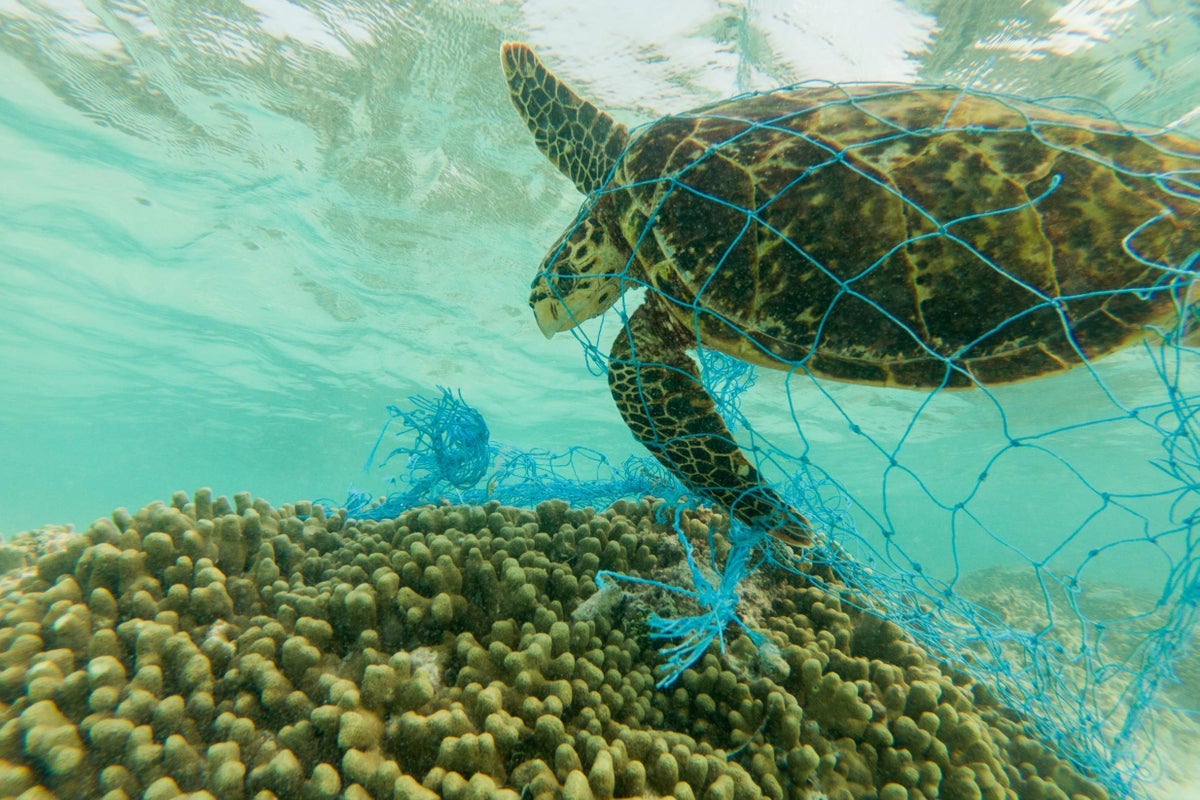Its production uses up 8 of our oil resource. Single use plastic bags are easily blown by wind and carried long distances getting stuck in trees or going into storm drains.
 Plastic Shopping Bags Environmental Impact
Plastic Shopping Bags Environmental Impact
Manufacturing it emits considerable amounts of pollution and the product is not biodegradable.

Why are plastic bags bad for the environment. An estimated 1 to 3 percent of American plastic shopping bags wind up cluttering the environment outside of landfills. If they end up in oceans and other water bodies these toxins end up in our drinking water posing serious health hazards to populations. Plastics bags do degrade both in the environment and within the bodies of.
Whether theyre stuck in a tree floating in the breeze or sitting in a trash pile these bags. A key ingredient is oil. 10 Good reasons why are plastic bags bad for us and for the environment 1 Plastic bags pollute our land and water.
Like everything else manufactured from this non-renewable resource it has two major drawbacks. One of the greatest problems is that an estimated 300 million plastic bags end up in the Atlantic Ocean alone. On land plastic bags are one of the most common types of litter worldwide.
Its manufacturing process is harmful to the environment and it remains toxic to the environment after you throw it away. While plastic bags can be reused they are hardly recycled. Look around and you will.
In addition to being very convenient for carrying groceries plastic bags and carrying food foam cups keep our coffee hot and food warm these products are highly energy and water efficient as well as sanitary. Adverse effects of plastic bags on land. Even if they make it into the garbage 100 billion bags take up space.
Why are plastic bags so bad for the environment. Many many studies have shown the harmful effects these bags have on the environment both as larger plastic items and upon fragmenting into microplastics. Impact of plastic bags on humans.
Processing centers use rolling cylinders to separate. Plastic shopping bags also represent a large part of plastic pollution on land. These bags are very dangerous for sea life especially those of the mammal variety.
It takes a lot of resources and energy to create a plastic bag. With regards to production they contribute to global warming by releasing carbon dioxide into the atmosphere. Plastic bags are from the same source as all plastic.
When thrown into a curbside recycling bin plastic bags go on to contaminate recycling centers. Plastic bags constitute less than two percent of litter Tierney reports. Any hunting mammal can easily mistake the size shape and texture of the plastic bag for a meal and find its airway is cut off.
This is because they are made using plastic which requires enormous amounts of energy from fossil fuels to be manufactured. As a fossil fuel oil must be extracted from the ground. As plastic bags decompose they leach toxic chemicals.
Single use plastics should be a thing of the past. Plastic bags which are made of polythene causes pollution all its life from manufacturing to disposal. That also makes them very inexpensive to produce and transport.
First consider why plastic products have prevailed in the marketplace. Build-ups of plastic bags are notorious for causing blockages of local drainage systems in developing countries. Plastic bags harm the environment upon being produced as well as when they are disposed of.
If plastic bags do end up in storm drains they are carried out to sea or they contribute to clogging them. Plastic bags can even be harmful before they are used. They take up little room in landfills and because they do not decompose they dont release methane into the atmosphere.
There are lots of good reasons why we should ban plastic bags. Plastic bags are everywhere. These bags end up in the ocean where theyre a choking hazard to animals and when theyre thrown into landfills they take centuries to decompose releasing pollutants into the air and being a danger to land animals.










